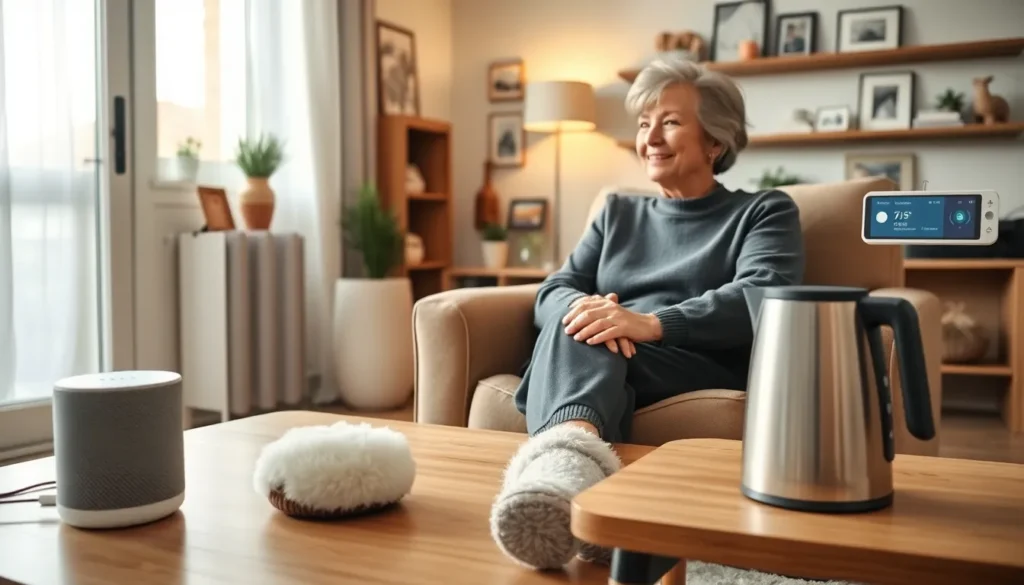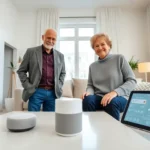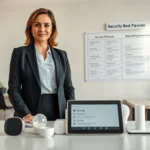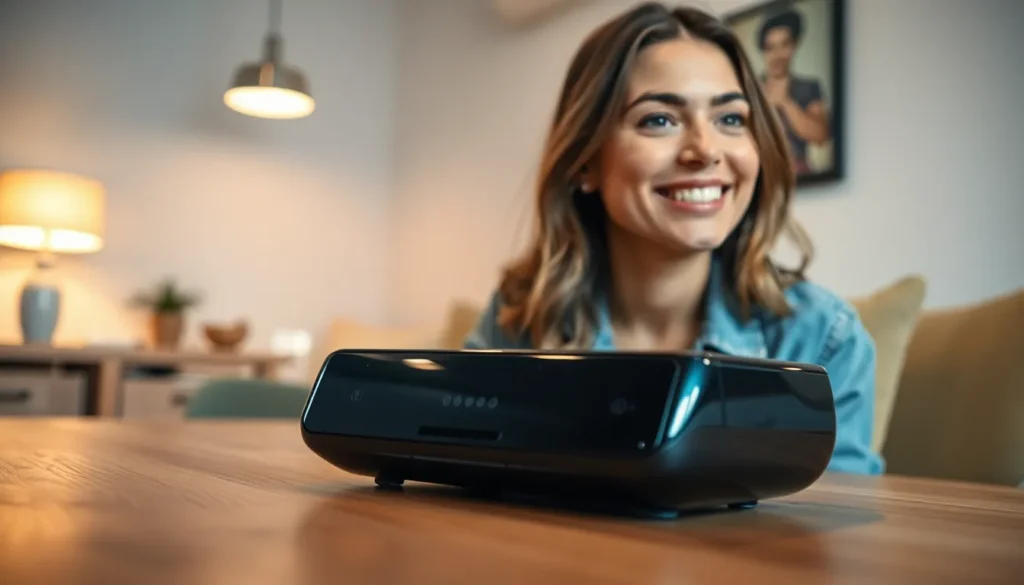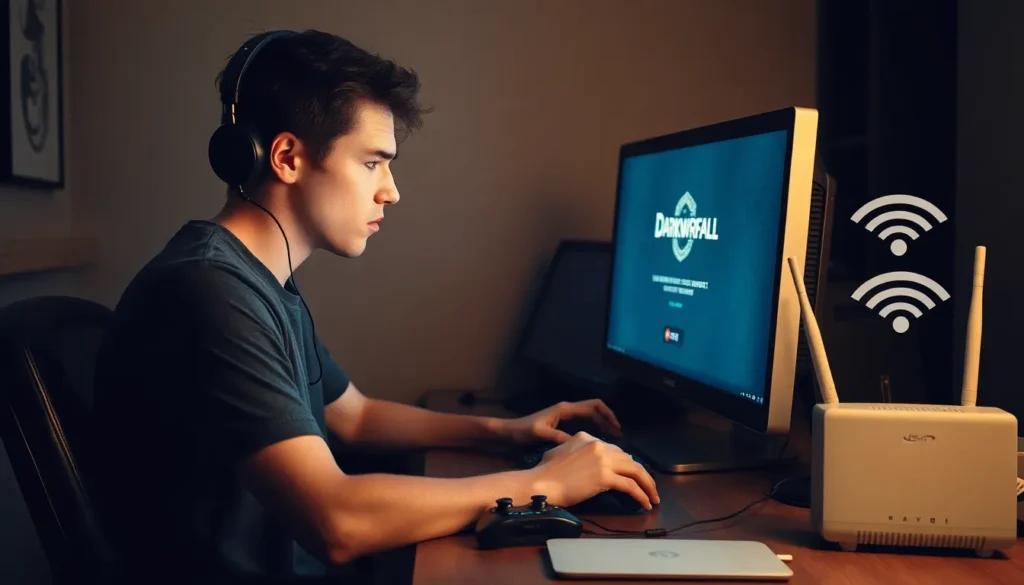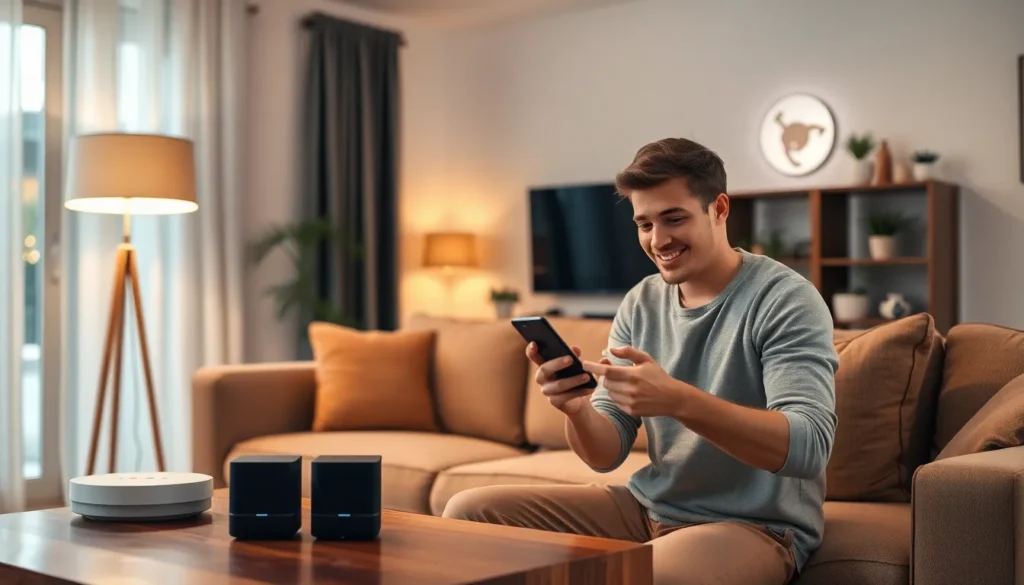Imagine this: Grandma, in her fuzzy slippers, chatting with her smart speaker about the weather while her kettle starts brewing coffee, all without lifting a finger. Sounds like sci-fi? Welcome to the world of smart home devices for seniors, where convenience meets safety and a sprinkle of tech-savviness. These handy gadgets are here to transform aging into something a touch brighter and definitely smarter. Let’s jump into the fascinating realm of smart home technology that enhances independence, boosts security, and, let’s be honest, makes life a whole lot easier for our favorite golden agers.
Understanding Smart Home Technology

Smart home technology refers to devices and systems that connect to the internet, allowing users to control them remotely through smartphones or other devices. These gadgets create a network of interconnected devices, which can be managed from a single point, even from down the street. For seniors, this technology is particularly appealing, as it offers tailored solutions to enhance comfortable living.
Imagine watching TV while your smart thermostat adjusts the temperature automatically. Everything from appliances to lighting operates seamlessly, creating an environment that feels effortless and intuitive. For seniors embracing this tech marvel, the learning curve is gently sloped, making it approachable and user-friendly.
Benefits of Smart Home Devices for Seniors
Senior-specific smart home devices offer a plethora of benefits, making daily life smoother and safer. Firstly, they provide increased independence. By using smart devices, seniors can accomplish tasks that might otherwise require assistance. A simple voice command can turn on lights or adjust the thermostat, translating to fewer calls for help.
Another incredible benefit is enhanced safety. With smart security systems, seniors can monitor their homes, receive alerts for suspicious activity, and even view live feeds through cameras. Also, peace of mind is assured with health monitoring devices that can track daily activities or trigger emergency alerts in case of accidents. This technology not only supports the elderly in feeling secure but also reassures family members.
Also, smart devices significantly improve accessibility. Voice-activated assistants help seniors interact with their environments, making technology feel less daunting. The list goes on, but the important takeaway is that these devices significantly enhance quality of life.
Key Smart Home Devices for Seniors
When it comes to smart home devices tailored for seniors, several options stand out.
Health Monitoring and Emergency Alert Systems
Consider health monitoring devices like wearable fitness trackers. These gadgets can monitor heart rates, track daily steps, and even alert caregivers in emergencies. Some systems allow for automatic notifications sent to family members if health irregularities are detected. Safety first, always.
Voice-Activated Assistants
Next up are voice-activated assistants like Amazon Alexa or Google Assistant. These smart speakers can act as personal aides, playing music, setting reminders for medications, or even calling for help if needed. The hands-free operation is an absolute game changer.
Smart Lighting Solutions
Smart lighting systems are another essential. From motion sensor lights that turn on automatically when someone enters a room to smart bulbs that can be adjusted via smartphone, lighting can greatly enhance safety and convenience. Feeling your way in the dark just got a whole lot easier.
Home Security Systems
Finally, top-tier home security systems include smart doorbells and cameras that provide real-time alerts and peace of mind. With ring doorbells, seniors can see who is at their door through their smartphones, allowing them to interact without opening the door, which can be a powerful layer of safety.
How to Choose the Right Smart Home Devices
Choosing the best smart home devices for seniors can seem overwhelming at first, but a few key considerations can simplify the process.
Considerations for Seniors
First and foremost, evaluate the needs of the senior in question. Does she struggle with memory? A smart assistant can help remind her of appointments. Is he concerned about security? A smart camera or alert system could be ideal. Personalizing device selection to fit specific needs is crucial in maximizing benefits.
Budget and Cost-Effectiveness
Budget plays a significant role too. Many devices come with various price tags, so understanding which features are most important can help narrow down options. Look for devices that offer good warranties and customer support to ensure long-term usability. After all, investing in technology should also mean investing in peace of mind.
Installation and User-Friendliness
Installation can be a hurdle for those not tech-savvy, yet many smart home devices are designed with seniors in mind. Many offer easy plug-and-play options or installation services, which can significantly lessen the learning curve. Smart hubs often allow for centralized control of multiple devices, making the entire setup more manageable.
User-friendliness is key. Devices that are intuitive and require minimal setup are ideal. The goal is to enhance comfort and convenience without complexity. Familiarizing seniors with their new gadgets through hands-on demonstrations can also help alleviate any apprehension.

